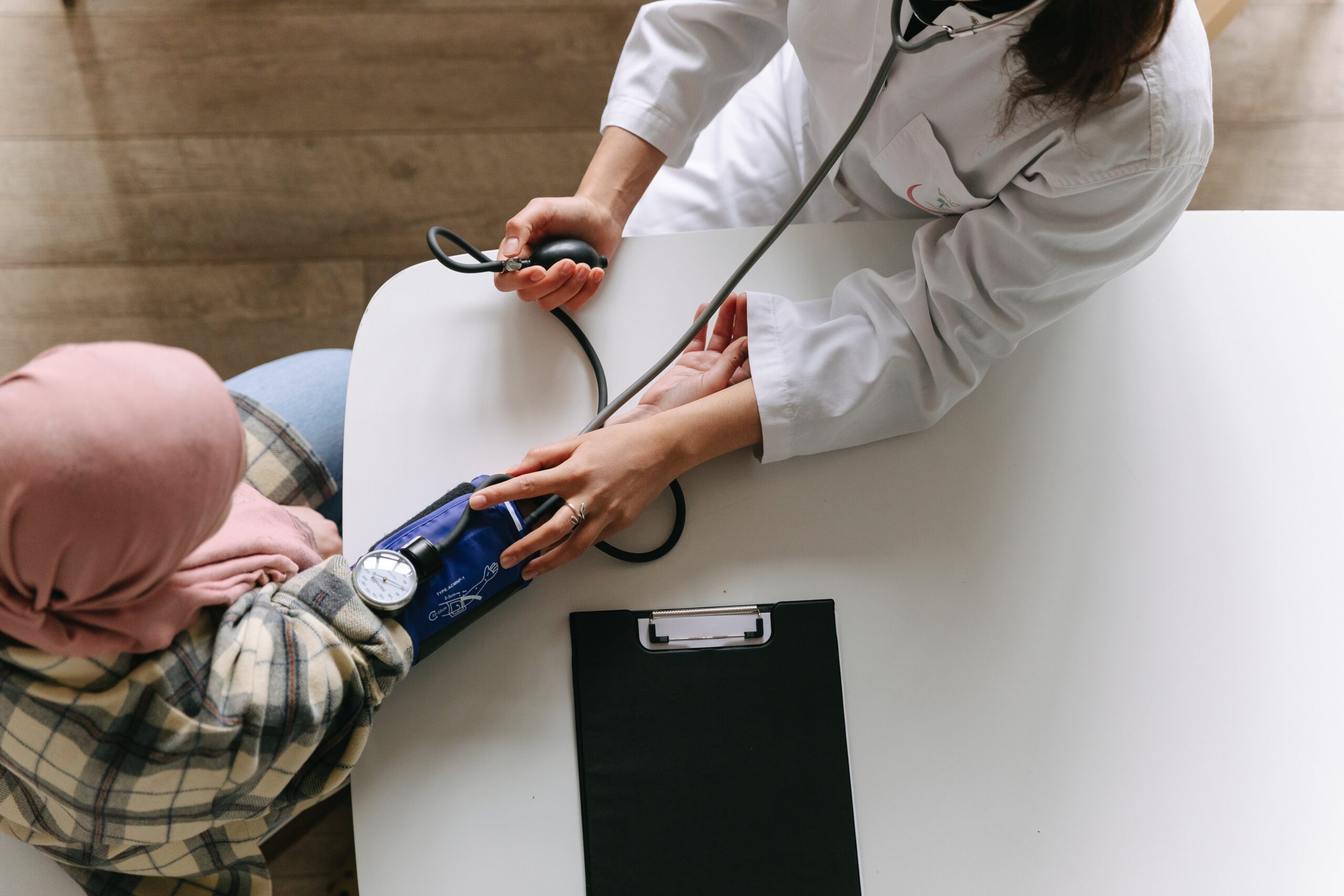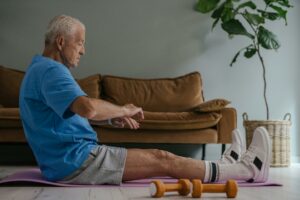
Celebrate American Heart Month this February by raising awareness and taking simple steps to combat one of America’s greatest threats. Whether it means caring for your own health or sharing knowledge with loved ones, American Heart Month is your chance to take action – especially for women.
In fact, cardiovascular disease is the number one killer of women in the United States. But it doesn’t have to be. Spreading the word about heart health to the women in your life or taking these steps yourself, can help reduce the risk of more women being victims of heart disease and stroke.
More than educating others, encouraging regular check-ups, and motivating healthy habits, you can learn more ways to help save lives affected by cardiovascular disease every day. Keep reading to learn how you can start making a difference now.
Take a Stand for a Healthier Heart
While heart disease continues to be the number one cause of death globally, women pose a higher risk of cardiovascular disease due to the unique life stages they experience, including pregnancy and menopause.
If you want to protect your heart, the first step is to meet with a medical professional to assess your current health. In many cases, issues such as high blood pressure, don’t cause any noticeable symptoms. Many Americans aren’t aware they have heart problems until something serious happens, such as an unexpected heart attack or stroke.
If your family has a history of heart disease, then you may be more at risk. The good news is that the sooner you get your health checked, the sooner you can begin to take the necessary steps toward improving or maintaining your heart’s health. Early detection can lead to life-saving treatment.
Be Ready to Help – Learn Hands-Only CPR
Of the 400,000 out-of-hospital cardiac arrests that occur every year, 89% of them result in death. Luckily there are ways you can help someone experiencing cardiac arrest, and it only takes 60 seconds to learn.
If you want to take action during American Hearth Month, we recommend learning hands-only CPR. This method is an alternative to mouth-to-mouth and is a great skill to have. It could save a life.
Too often women who are suffering from cardiac arrest will go unassisted because bystanders are afraid to touch them. Hands-only CPR is a great option and highly effective too.
The first few minutes are critical when someone collapses with a cardiac arrest. So it’s important to be ready to help. You can watch one of the American Heart Association’s videos to learn how and reference these two steps:
- You first want to call 911 or have someone else call. Then put the phone on speaker.
- Next, you’re going to use your hands to push down on the center of the person’s chest at a rate of 100-120 compressions per minute. (It’s recommended to use a song like “Stayin’ Alive” by the BeeGees to time yourself.)
Learning this simple, yet powerful, skill could save someone’s life.
Team Up & Set Healthy Habits
American Heart Month is a great reminder to start setting healthy habits. The best way to stick with them is by teaming up with friends and family so you can continue to motivate each other throughout the year.
One habit worth starting is to monitor your blood pressure. High blood pressure is a common cause of heart disease. Even if your doctor takes your blood pressure during regular visits, it’s still a good idea to monitor it at home for the most accurate results.
For some people, their doctor’s office is a relaxing place. Others find it to be stressful. This could mean your blood pressure reading isn’t consistent with readings you might get regularly at home. Studies show that about half of U.S. adults (or 104 million) should be monitoring their blood pressure at home to account for contrasting results from their doctor visits.
Heart monitors are easy to find and use. Many pharmacies and grocery stores offer blood pressure machines that you can use for free. Or you can purchase one for less than $50. Checking your blood pressure on your own helps you take charge of your heart health and avoid dangerous health risks such as heart attack, stroke, and organ damage.
Remember to Take Care of Yourself
Another important message for everyone during American Heart Month is to remember to prioritize self-care. Your mental wellness directly affects the health of your heart. Prolonged, highly stressful situations can cause damage to your health over time – particularly your heart.
While we often focus on our physical body’s health, it’s important not to let your emotional and mental well-being fall under the radar. Spending time with friends, taking steps to de-stress, meditate, do something you love, or talk to someone about your day, can prevent future health problems.
Our mental health includes emotional, social, and psychological well-being. When we don’t take time to care for our mental health, our physical health suffers too. The stability of our mental health determines how well we handle stress in our lives.
Studies show that people who experience mental health disorders such as anxiety, depression, PTSD, and stress are more prone to increased cardiac reactivity. This means higher blood pressure, increased heart rate, reduced blood flow to the heart, and higher cortisol levels. Over time these symptoms lead to calcium build-up in your arteries, heart disease, and metabolic disease.
Without a doubt, when you’re happier, more relaxed, and less stressed, your heart benefits. Whether for yourself, or the loved ones in your life, set goals this month to make mental wellness a priority.
Never Too Late to Get Started
Whatever motivates you to get started this month, we hope you found these simple tips helpful. There are so many reasons to make heart health a priority for yourself and everyone in your life. Spreading the word is a great way to make a difference and take action.
If you’re interested in learning more about keeping your heart healthy, our team of expert cardiologists can help you discover the best path forward for you.
Ready to take action this month? It’s easy to get started by scheduling an appointment here.





